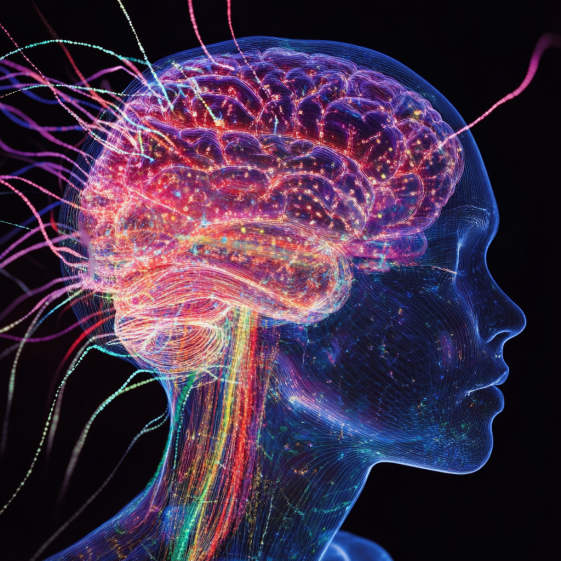How Sleep Affects Your Brain: Unlock Memory, Mood & Creativity
Understanding how sleep affects your brain is key to improving memory, emotional balance, and creative thinking. This guide explores how each stage of sleep contributes to brain health and offers strategies to enhance your cognitive performance. For a full breakdown of sleep’s role in health, see our pillar guide on the impact of sleep.
Key Takeaways on How Sleep Affects Your Brain
- 🧠 Sleep supports memory, creativity, and emotional health
- 🛌 REM sleep is critical for mental restoration and dream activity
- ⏳ Sleep deprivation weakens brain function and resilience
- 📓 Dream journaling can enhance recall and awareness
- 🕒 A consistent schedule strengthens circadian rhythm and cognition

How Sleep Affects Your Brain During REM Sleep
REM sleep is the most mentally active phase of the sleep cycle. It plays a key role in dreaming, emotional processing, and brainwave activity.
Key Ways Sleep Influences Brain Function
- 🧠 Memory Consolidation – Dreams reinforce and organize new knowledge.
- 🧠 Emotional Regulation – The brain processes stressful or traumatic events.
- 🧠 Creative Thinking – Sleep fuels imagination and innovation.
- 🧠 Neural Strengthening – Connections for motor skills and learned behaviors are refined.
🌙 Read More: How Sleep Deprivation Affects Your Brain & Mental Health
🔗 Reference: Sleep Foundation – Why We Need Sleep

The Sleep Cycle and How Sleep Affects Your Brain at Every Stage
Each stage of the sleep cycle plays a vital role in cognitive function, emotional balance, and brain recovery.
The Four Stages of the Sleep Cycle
- Light Sleep – Transition phase from wakefulness.
- Deeper Sleep – Slows brain waves and prepares the body for full rest.
- Deep Sleep – Essential for recovery, healing, and immune system function.
- REM Sleep – Where your brain is most active and dreams occur.
🔄 Fact: REM sleep becomes longer in the second half of the night, so cutting sleep short reduces dream time.
🛎️ Read More: How to Reset Your Circadian Rhythm for Better Sleep
Why It Matters: How Sleep Affects Your Brain and Mental Health
Sleep plays a crucial role in emotional regulation, memory, learning, and creative problem-solving. Dreams provide psychological benefits and help process daily experiences.
Benefits of Healthy Dreaming
- ✔️ Processes Emotions Like Therapy
- ✔️ Reinforces Learning and Memory
- ✔️ Aids in Stress and Trauma Recovery
- ✔️ Sparks Creativity and Innovation
⏳ Read More: NIH – Brain Waves During Sleep Help Store Memories
What Disrupts How Sleep Affects Your Brain and Dreams
Several habits and conditions can negatively impact your brain’s ability to rest and restore during sleep.
Disruptive Factors
- ❌ Sleep Deprivation – Fewer REM cycles
- ❌ Alcohol & Caffeine – Suppresses REM and dream vividness
- ❌ Chronic Stress – Raises cortisol and disrupts sleep
- ❌ Irregular Schedules – Weakens circadian rhythm
🔹 Read More: How Stress & Anxiety Impact Your Sleep & How to Fix It
How to Improve Dream Recall and How Sleep Affects Your Brain
Better sleep hygiene can enhance brain clarity and dream vividness. Use the following science-backed strategies to support your mental health through quality sleep.
- Sleep 7–9 Hours Nightly – More sleep = more REM = stronger brain performance.
- Keep a Dream Journal – Write your dreams as soon as you wake to improve recall. 🌿 Try this: The Best Foods for Deep Sleep
- Explore Lucid Dreaming – Use techniques like reality checks, mindfulness, and journaling.
- Avoid Alcohol & Caffeine Before Bed – Cut off caffeine 6 hours prior; reduce alcohol intake.
🔄 Read More: How Blue Light Affects Your Sleep & How to Block It Naturally
Common Dreams and What They Reveal About How Sleep Affects Your Brain
Dreams reveal subconscious thoughts and emotional patterns. Here’s what common symbols may reflect about your brain’s inner world while sleeping:
- 🌊 Water – Emotional depth
- 🏃 Being Chased – Anxiety or fear
- 💡 Flying – Freedom, confidence
- 📚 Taking a Test – Self-evaluation or pressure
🛎️ People who manage stress and sleep well report more meaningful, vivid dreams.
🔄 Read More: The Science of Power Naps

FAQ
- How does REM sleep impact brain function?
- REM sleep helps consolidate memory, process emotions, and promote creativity by mimicking waking brain activity.
- How much sleep is needed for optimal brain health?
- Adults typically need 7–9 hours of quality sleep to complete full sleep cycles, especially REM sleep.
- What habits improve dream recall?
- Keeping a dream journal, sleeping regularly, and reducing stimulant intake can significantly enhance dream memory.
Final Thoughts: How Sleep Affects Your Brain and Unlocks Its Potential
Improving your sleep quality is one of the most effective ways to boost your brain, regulate your emotions, and unlock your full cognitive potential.
- ✅ Sleep 7–9 hours to support complete REM cycles
- ✅ Avoid stimulants and stress before bedtime
- ✅ Use dream journaling to improve memory and awareness
🌙 Sleep better tonight—because how sleep affects your brain determines how well you live tomorrow. 😴💭
Related reading from Cozy Bed Quarters
- How Sleep Deprivation Affects Your Brain & Mental Health
- How to Reset Your Circadian Rhythm for Better Sleep
- The Best Foods for Deep Sleep
Other reading we found popular
- Why We Need Sleep – Sleep Foundation
- The Link Between Sleep and Memory – Eachnight
- Bedroom Design Tips for Better Sleep – Architectural Digest
- The Science of Dreams – Ethical Bedding























